Are you tired of dealing with pesky ants invading your home? Look no further! In this informative article, we will explore everything you need to know about pest control for ants. From the costs involved, to the various methods you can use, and even prevention tips to keep these tiny intruders at bay. Whether you’re looking for effective DIY solutions or considering professional help, we’ve got you covered. Say goodbye to ant infestations and hello to a pest-free home!
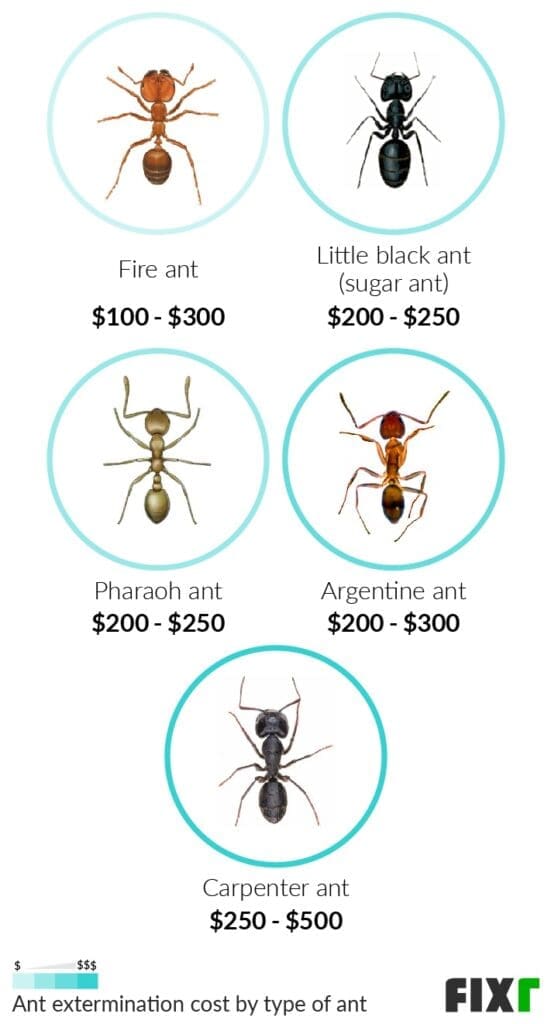
Costs of Ant Pest Control
Ant pest control can be an essential service to keep your home free from these pesky intruders. However, it’s important to understand the costs associated with professional ant pest control and consider the option of DIY methods. By evaluating the different factors affecting ant pest control costs and comparing the expenses of professional and DIY options, you can make an informed decision that suits your budget and needs.
Factors Affecting Ant Pest Control Costs
Several factors can influence the cost of ant pest control. These include the size of the infestation, the severity of the problem, and the type of ant species involved. The location and accessibility of the infested area within your property can also affect the price. Additionally, the choice between professional pest control services and DIY methods can have a significant impact on the overall cost.
Average Cost of Professional Ant Pest Control
On average, the cost of professional ant pest control can range from $100 to $300, depending on the factors mentioned earlier. This cost typically covers the initial inspection, treatment, and follow-up visits if necessary. Keep in mind that prices may vary depending on the location and the specific pest control company you choose.
DIY Ant Pest Control Cost
If you prefer a more budget-friendly option, DIY ant pest control methods can be an effective alternative. The cost of DIY ant control products can range from $10 to $50, depending on the brand, quantity, and effectiveness of the product. However, it’s important to remember that the success of DIY methods often depends on the severity and complexity of the infestation.
Cost Comparison: Professional vs. DIY Ant Pest Control
When comparing the costs of professional and DIY ant pest control, it’s crucial to consider multiple aspects. While professional services may initially seem more expensive, they often provide comprehensive assessments, targeted treatments, and follow-up visits if needed. On the other hand, DIY methods may require repeated purchases of products and can be less effective for severe infestations. Therefore, it’s essential to evaluate the severity of the infestation, your comfort level with DIY methods, and your budget before making a decision.
Methods of Ant Pest Control
To effectively eliminate ants from your home, it’s crucial to understand the different methods of ant pest control available. These methods can be broadly categorized into chemical and non-chemical approaches.
1. Chemical Methods
Chemical methods involve the use of insecticides and other products to kill or repel ants. Here are some common chemical control options:
1.1 Liquid Ant Baits
Liquid ant baits are one of the most commonly used chemical methods. These baits contain a sweet or protein-based lure that attracts ants. Once the ants consume the bait, they carry it back to their colony, effectively eliminating the entire ant population.
1.2 Ant Sprays
Ant sprays are designed to kill ants on contact. They are often used for spot treatments, targeting specific areas where ants are present. Ant sprays can be effective for immediate control, but they might not eliminate the entire colony.
1.3 Ant Dusts
Ant dusts are powders or granular substances that are applied to areas where ants are active. These dusts work by sticking to the bodies of ants, leading to dehydration and eventual death. Ant dusts can provide long-lasting control.
1.4 Ant Granules
Ant granules are similar to ant dusts but are typically larger particles. They are spread around the perimeter of the house or near ant trails. The granules release a slow-acting insecticide that is carried back to the colony, effectively eliminating the ants.
2. Non-Chemical Methods
Non-chemical methods focus on using natural repellents, physical barriers, and biological control to manage ant infestations. These methods are often preferred for their minimal environmental impact and safety.
2.1 Natural Repellents
Natural repellents, such as vinegar, citrus peels, or essential oils, can deter ants from entering your home. These substances are applied to areas where ants are commonly found, creating a barrier that ants dislike.
2.2 Physical Barriers
Physical barriers, such as caulking or weatherstripping, can be used to seal cracks and crevices where ants might enter. By eliminating their entry points, you can prevent ants from invading your home.
2.3 Biological Control
Biological control involves introducing natural predators or parasites of ants into the environment. For example, certain species of ants can be controlled by introducing nematodes, which are microscopic worms that infect and kill ants.
By understanding and utilizing both chemical and non-chemical methods of ant pest control, you can effectively eliminate ants from your home while taking into account your preferences and concerns regarding environmental impact.
Prevention Tips for Ant Infestations
Preventing ant infestations is the key to avoiding the need for pest control measures altogether. By implementing these prevention tips, you can minimize the chances of ants entering your home:
Identifying Common Entry Points
Regularly inspect your property for potential entry points that ants can use to infiltrate your home. Look for gaps in doors, windows, and cracks in walls. Seal these openings with caulk or weatherstripping to block their access.
Keeping Food and Trash Secure
Ants are attracted to food sources, so keeping your food and trash secure is essential. Store food in airtight containers, clean up spills and crumbs promptly, and take out the trash regularly to prevent ant infestations.
Sealing Cracks and Crevices
Sealing cracks and crevices both indoors and outdoors is crucial to prevent ant access points. Pay particular attention to areas around pipes, vents, and utility lines.
Trimming Tree Branches and Shrubs
Ensure that tree branches and shrubs are trimmed away from your home. Overhanging branches can provide easy access for ants and other pests to enter your house.
Properly Storing Firewood
If you have firewood stored near your home, make sure it is elevated and placed at a distance from your house. Ants can nest in firewood and use it as a pathway into your home.
Maintaining Cleanliness and Hygiene
Regularly clean your home, removing any food crumbs or spills that can attract ants. Wipe down countertops, sweep floors, and properly store food to maintain a clean environment that is less appealing to ants.
Removing Standing Water Sources
Ants are attracted to moisture, so it’s important to eliminate any standing water sources both inside and outside your home. Fix leaky faucets, repair faulty pipes, and ensure proper drainage in your yard.
Repairing Moisture Problems
Moisture problems, such as water leaks or excessive condensation, can create an environment conducive to ant infestations. Address and fix any moisture issues promptly to prevent their attraction.
Professional Ant Pest Inspections
Regular professional ant pest inspections can help detect and address ant infestations early on. These inspections can identify problem areas and provide guidance on prevention measures.
Regular Maintenance and Monitoring
Consistently maintaining and monitoring your home for signs of ants is essential in preventing infestations. Regularly inspect your property, particularly areas where ants are commonly found, such as kitchens and bathrooms.
By following these prevention tips, you can greatly reduce the chances of ant infestations and minimize the need for extensive pest control measures.
Common Types of Ants
There are numerous species of ants that can invade your home, each with their own habits and nesting preferences. Understanding the common types of ants can help in identifying infestations and choosing the appropriate control methods. Here are some of the most common types of ants:
Carpenter Ants
Carpenter ants are known for their ability to excavate wood, causing damage to structures. They typically nest in decaying wood and can sometimes establish satellite colonies within your home.
Odorous House Ants
Odorous house ants emit a distinct, unpleasant odor when crushed. They are attracted to sweet substances and can quickly infest your home. These ants commonly nest outdoors but can enter your house through cracks and crevices.
Pharaoh Ants
Pharaoh ants are small, light-colored ants that can infest commercial buildings and homes. They are known for their ability to establish multiple nests, making them challenging to eliminate completely.
Argentine Ants
Argentine ants are small, light to dark brown ants that form extensive colonies. They are attracted to sweet foods and water sources, and their colonies can become very large if left untreated.
Pavement Ants
Pavement ants are commonly found nesting in cracks in pavement or foundations. They are dark brown to black in color and can invade your home in search of food or shelter.
Fire Ants
Fire ants are known for their aggressive behavior and painful stings. They form large mounds in outdoor areas and can pose a threat to both humans and pets.
Acrobat Ants
Acrobat ants often have a heart-shaped abdomen and are known for their ability to raise their head and abdomen in a “rearing” position. They can nest in both moist and dry wood and can be found indoors and outdoors.
Thief Ants
Thief ants are tiny ants that are often mistaken for pharaoh ants due to their similar size and behavior. They are known for their tendency to steal food from other ant colonies.
Citronella Ants
Citronella ants are pale yellow ants that emit a lemon-like odor when crushed. They commonly nest outdoors and are attracted to damp or decaying wood.
By familiarizing yourself with these common types of ants, you can better identify the species invading your home and choose the appropriate methods for control.
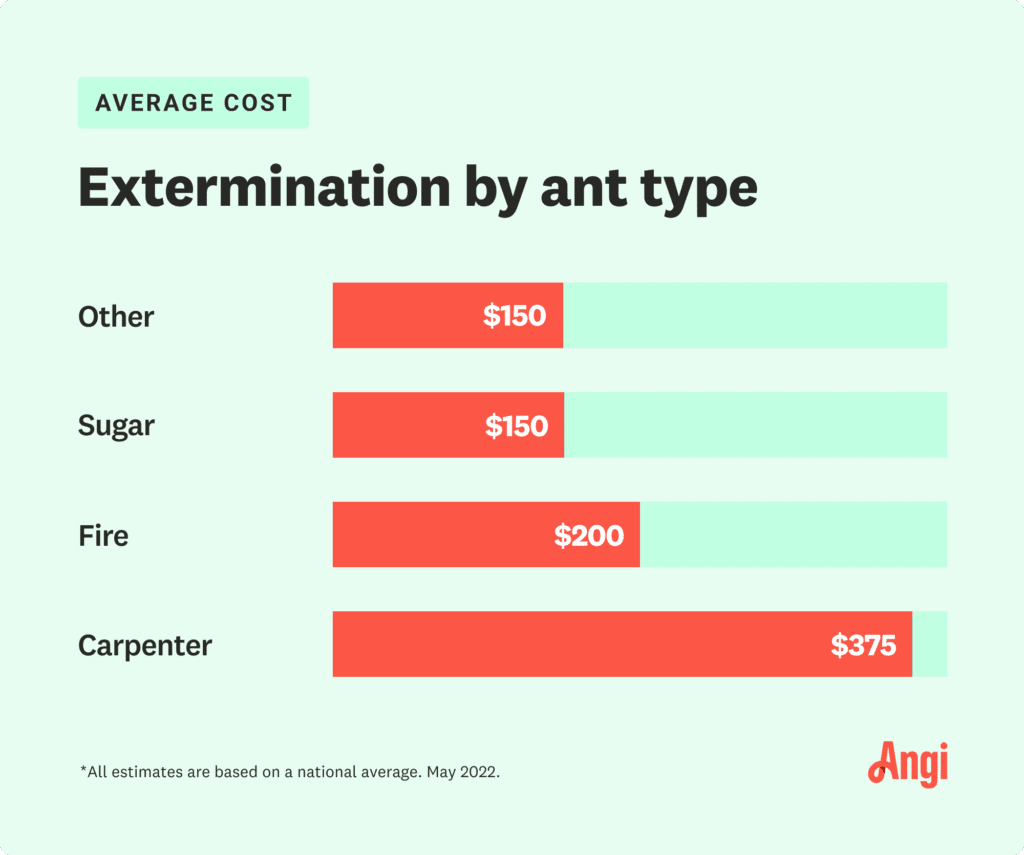
Choosing the Right Ant Pest Control
When faced with an ant infestation, it’s important to choose the right pest control method that best suits your specific situation. Here are some factors to consider when making your choice:
Identifying the Ant Species
First and foremost, you need to identify the ant species causing the problem. Different ant species may require specific control methods or treatments. By identifying the ant species, you can tailor your approach accordingly.
Assessing the Ant Infestation Severity
Evaluate the severity of the ant infestation. Are you dealing with a minor problem or a widespread and persistent issue? The severity may influence whether you opt for DIY methods or seek professional help.
Considerations for DIY or Professional Control
Consider your comfort level and expertise with DIY methods versus your willingness to hire professional pest control services. DIY methods can be cost-effective but may require more time and effort on your part. Professional services offer expertise, comprehensive treatments, and follow-up visits if necessary.
Environmental Impact and Safety Concerns
Take into account the environmental impact and safety concerns associated with different pest control methods. If you have children, pets, or specific environmental sensitivities, you may prefer non-chemical or eco-friendly alternatives. Ensure that the chosen methods align with your safety and environmental values.
By carefully considering these factors, you can make an informed decision and choose the most suitable pest control method for your ant infestation.
Professional Ant Pest Control Services
While DIY methods can be effective for minor infestations, there are several benefits to hiring professional ant pest control services for more severe or persistent problems. Here are some advantages of opting for professional help:
Benefits of Hiring Professional Pest Control
Professional pest control companies have the knowledge, experience, and expertise to handle complex or widespread ant infestations. They can accurately identify the ant species, assess the severity of the problem, and implement targeted treatments for long-lasting control.
Finding Reputable Ant Pest Control Companies
To ensure the effectiveness and quality of the service provided, it’s important to find reputable ant pest control companies in your area. Look for companies that are licensed, insured, and have a proven track record of successfully treating ant infestations.
Questions to Ask When Hiring a Pest Control Service
When contacting pest control companies, ask relevant questions to gauge their expertise and determine if they are the right fit for your needs. Inquire about their experience in handling ant infestations, the methods and products they use, and the guarantees or warranties they offer.
Preparing for Professional Ant Pest Control
Before the scheduled pest control visit, make sure to prepare your home accordingly. Follow any specific instructions provided by the pest control company, such as clearing the areas to be treated, removing pets or children from the premises, and storing food and utensils safely.
By hiring professional ant pest control services, you can benefit from their knowledge and expertise to effectively eliminate ant infestations and ensure long-term prevention.
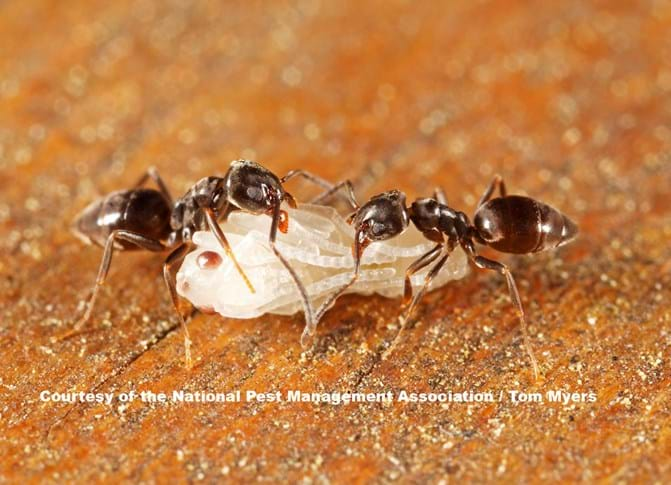
DIY Ant Pest Control Tips
For those who prefer a hands-on approach and want to save money, DIY ant pest control methods can be a viable option. Here are some tips to help you effectively control ant infestations on your own:
Diagnosing the Ant Problem
Begin by accurately identifying the ant species and locating the source of the infestation. This information will guide your choice of control methods and allow you to target the problem at its root.
Choosing the Right DIY Ant Pest Control Products
Selecting the appropriate DIY pest control products is crucial for success. Research different options, read customer reviews, and consider the specific needs of your situation. Look for products that target the ant species you are dealing with and offer effective and long-lasting control.
Application Techniques for DIY Ant Pest Control
Follow the instructions provided with the chosen DIY ant control products. Apply them precisely as directed, paying extra attention to areas identified as ant activity zones. This may include cracks, crevices, ant trails, or areas where food is stored or prepared.
Safety Precautions for DIY Ant Pest Control
Always prioritize safety when using DIY ant control products. Read and understand all safety precautions and wear protective gear, such as gloves and masks, if necessary. Keep children and pets away from treated areas until the products have dried or settled.
By following these DIY ant pest control tips, you can effectively address minor ant infestations and potentially save costs.
Potential Risks and Hazards of Ant Control
While ant pest control methods can effectively eliminate ant infestations, it’s important to be aware of potential risks and hazards associated with these methods. Here are some considerations to keep in mind:
Health Risks of Ant Pest Control Products
Some ant control products contain chemicals that can pose health risks if mishandled or misused. It’s important to read and follow all safety instructions provided with the products. If you have specific health concerns or sensitivities, consider using alternative, non-chemical control methods.
Environmental Impact of Ant Pest Control Chemicals
Certain insecticides used for ant pest control can have an impact on the environment. It’s important to choose products that are labeled as safe for the environment and follow proper disposal guidelines. If eco-friendliness is a priority for you, explore non-chemical pest control options.
Safety Measures to Minimize Risks
To minimize risks associated with ant control, always follow the instructions provided by the product manufacturer or pest control professional. Wear appropriate protective gear, keep treated areas inaccessible to children and pets, and use caution when handling and applying the products.
By understanding and taking appropriate safety measures, you can minimize potential risks associated with ant pest control methods and ensure the well-being of both yourself and the environment.
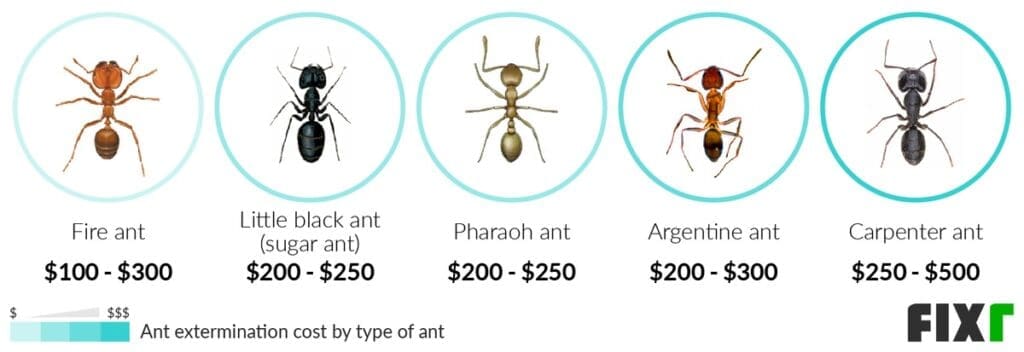
Product Reviews: Ant Pest Control Products
To aid you in choosing the most effective ant pest control products, we have compiled a list of top-rated options in various categories:
Top-rated Ant Baits
-
[ABC Ant Bait Gel](Amazon affiliate link): This gel bait effectively attracts and eliminates a wide range of ant species, providing long-lasting control.
-
[TERRO Liquid Ant Bait](Amazon affiliate link): This liquid bait is highly attractive to common household ants and delivers quick results. It comes in a convenient pre-filled bait station.
Effective Ant Sprays
-
[Ortho Home Defense Insect Killer](Amazon affiliate link): This spray kills ants on contact and provides residual protection against future infestations.
-
[Raid Ant and Roach Killer Spray](Amazon affiliate link): This versatile spray eliminates ants and other crawling insects, offering both immediate and long-term control.
Non-Toxic Ant Repellents
-
[Orange Guard Natural Ant Control Spray](Amazon affiliate link): This natural repellent is made from citrus peel extract and effectively deters ants without the use of harsh chemicals.
-
[mdxconcepts Organic Home Pest Control Spray](Amazon affiliate link): This organic spray repels ants and other pests using a blend of natural essential oils, making it safe for indoor use.
Ant Dusts for Long-lasting Control
-
[Delta Dust Multi-Use Pest Control Insecticide](Amazon affiliate link): This dust effectively kills ants and other crawling insects, providing long-lasting residual control. It is suitable for both indoor and outdoor use.
-
[HARRIS Diatomaceous Earth Powder](Amazon affiliate link): This natural dust is composed of fossilized remains of diatoms and acts as a desiccant, dehydrating and killing ants when they come into contact with it.
Pet-Safe Ant Pest Control Products
-
[Wondercide Flea and Tick Control for Pets and Home](Amazon affiliate link): This versatile spray can be used on pets, as well as indoors and outdoors to control ants and other pests. It is safe for pets and humans when used as directed.
-
[EcoSMART Organic Ant and Roach Killer](Amazon affiliate link): This organic spray is safe to use around pets and provides effective control of ants without the use of synthetic chemicals.
Conclusion
Ant pest control is an important aspect of keeping your home free from these unwanted intruders. By understanding the costs, methods, and prevention tips associated with ant pest control, you can make informed decisions on how to effectively eliminate ant infestations. Whether you choose to hire professional pest control services or embark on a DIY approach, always prioritize safety, educate yourself on the ant species involved, and consider the environmental impact of your chosen methods. With the right strategies and products, you can successfully rid your home of ants and maintain a pest-free environment.
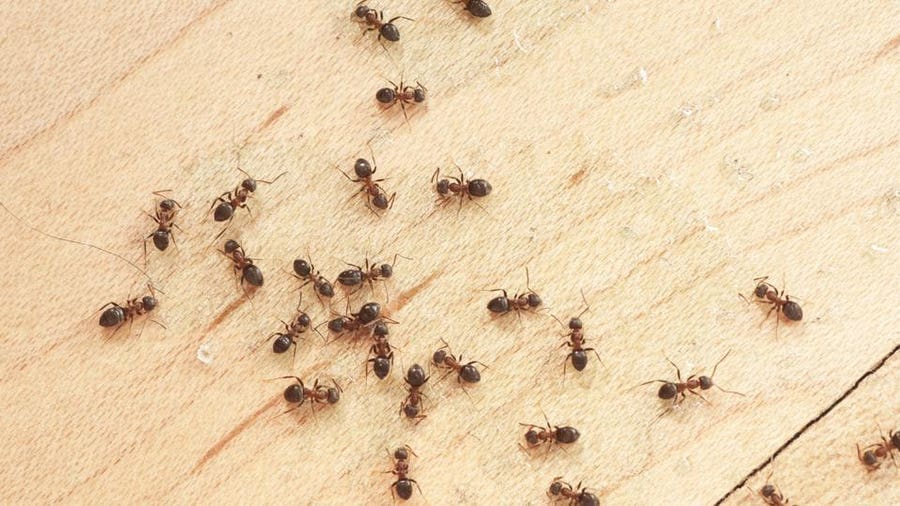

I am Randy, the author behind PestControld.com. Drawing from decades of experience, I aim to provide valuable insights, expert advice, and practical recommendations to help you make informed decisions when assessing viable pest control solutions.